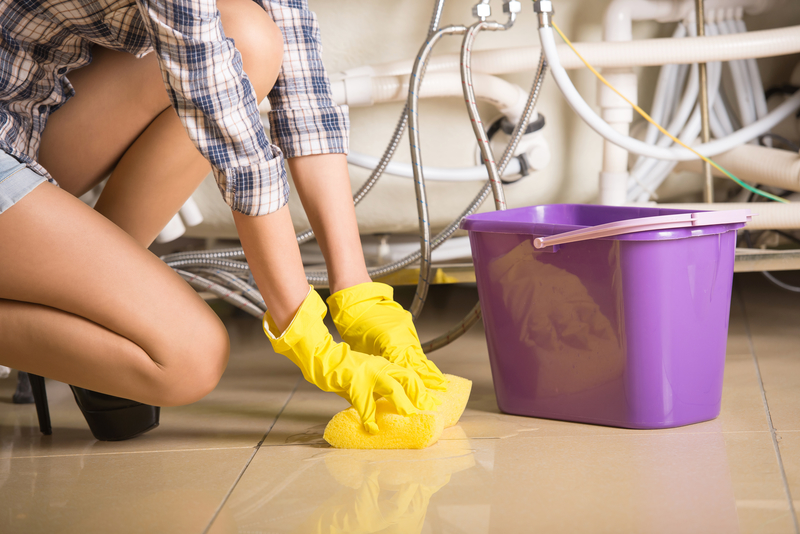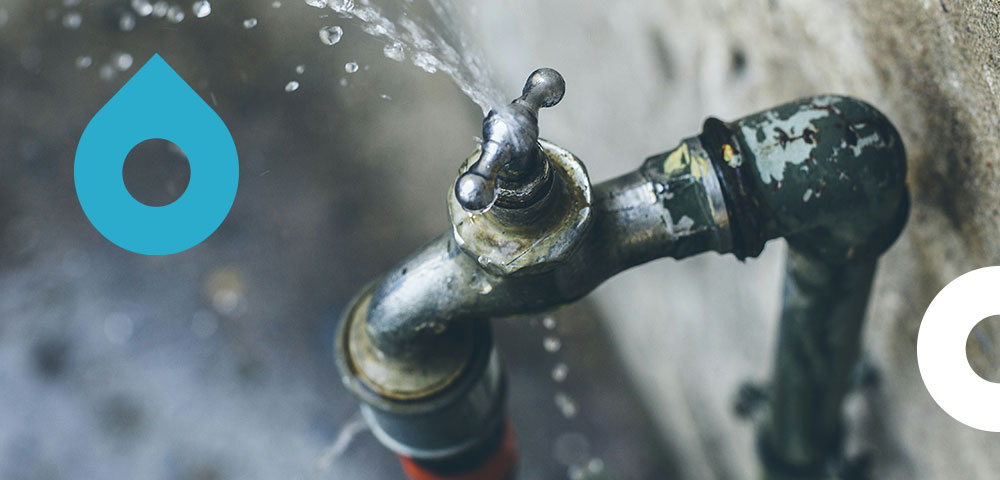5 Frequent Origins of Water Leaks
5 Frequent Origins of Water Leaks
Blog Article
We have uncovered the article about How to Find and Prevent Water Leaks in Your Home listed below on the web and decided it made perfect sense to relate it with you in this article.

"Beware of little expenditures. A tiny leakage will sink an excellent ship." - Benjamin Franklin.
He couldn't have been extra appropriate since water leaks in our homes cause a waste of sources, enhancing our water bills. This rise might appear minimal at initially, it can lead to considerable costs that can break your bank. Aside from an increase in costs, water leaks also create unwanted natural development, architectural damages, as well as also electrical threats.
Figuring out if you have a water leakage isn't always easy because of being not able to see most of the pipework in your home. Nonetheless, If you have had an increase in your water bills recently, observed water spots on walls and ceilings, smelt poor odor, etc. You may intend to consider requesting plumbing solutions to get it looked into.
There are several sources of water leakages, as well as we have assembled the common factors listed below. Check to see if you have actually had associated concerns in your home lately.
Deteriorated pipeline joints
Pipeline joints are the parts of our plumbing system where the pipes connect. They are the weakest factor of our plumbing system. Therefore, they are much more at risk to wear and tear. It is vital to note that despite the fact that pipes are developed to stand up to stress and last for some time, they weren't made to last permanently; for that reason, they would weaken with time. This wear and tear could result in fractures in plumbing systems. A typical indicator of harmed pipe joints is extreme sound from faucets.
High water pressure
You noticed your house water stress is more than normal yet then, why should you care? It runs out your control.
It would be best if you cared since your typical water stress must be 60 Psi (per square inch) and although your house's plumbing system is designed to hold up against 80 Psi. A boost in water pressure can place a strain on your residence pipelines and also lead to fractures, or worse, burst pipelines. Get in touch with a specialist regarding regulating it if you ever see that your house water stress is higher than normal.
Corrosion
As your pipework grows older, it gets weaker and more vulnerable to corrosion after the regular flow of water via them, which can gnaw at pipelines as well as trigger splits. A visible sign of corrosion in your home plumbing system is staining and also although this could be difficult to find because of a lot of pipes hidden away. We advise doing a constant appointment every few years and alter pipes once they are old to make certain a sound plumbing system
Obstructed drains
Food bits, dust, and grease can trigger clogged drains as well as obstruct the flow of water in and out of your sink. Boosted pressure within the seamless gutters can trigger an overflow and end up cracking or rupturing pipelines if undealt with. To stay clear of clogged up drains pipes in your home, we recommend you to avoid putting fragments away as well as regular cleansing of sinks.
Damaged seals
Another cause of water leakages in houses is damaged seals of house devices that utilize water, e.g., a dishwasher. When such devices are installed, seals are mounted around water connectors for simple passage of water with the equipment. For this reason, a busted seal can cause leak of water when in operation.
With little or no knowledge of plumbing, comprehending your house's plumbing system adequate to deal with some of these issues (without consequence) can be a problem. Connect with plumbing specialists in Pittsburgh, Divine Superintendence, Rochester, and also environ today, and also they'll make those concerns go away.
He could not have been extra appropriate since water leakages in our homes result in a waste of resources, raising our water bills. If you have had a boost in your water bills lately, noticed water spots on wall surfaces and ceilings, scented poor odor, and so on. A boost in water stress can put a pressure on your home pipelines and lead to splits, or worse, ruptured pipelines. One more reason of water leakages in houses is damaged seals of home appliances that make use of water, e.g., a dishwasher. When such devices are installed, seals are set up around water adapters for very easy passage of water through the maker.
5 TIPS IN DETECTING A WATER LEAK IN YOUR HOUSE
Water leaks can be hard to find in your home, yet they can be so common. We rely on water every day in our home, which is why a leak can cause big problems. By detecting them early, you can save money and further damage, getting the problem fixed as soon as possible. Here are 5 tips to help you detect a water leak in your home, so you can contact a plumber straight away and get the issue sorted.
Check your water meter
Many people underestimate the value of the water meter in their home. It can be one of the best ways to tell if you have a leak early on, so you can get on top of it before issues start arising. Start by turning off all the water in your home: taps, washing machine, dishwasher, etc. Now take a look at the meter – if it’s still changing with everything turned off, it’s likely you have a fast-flowing leak that you need to get on top of straight away. If nothing changes, then leave your meter for an hour or two and come back to it. Did it change in this time? It’s likely you have a slower leak, which isn’t as urgent but still handy to get fixed so it doesn’t become a bigger problem.
Keep an eye on your bill
Another good way to detect a leak in your home is by keeping an eye on your water bill. It helps if you have a past bill from the same period of time. You can compare like for like and determine whether your water usage has increased significantly. If it has, there may be a leak in your system that you haven’t picked up before. A professional plumber can check through all of your pipes and determine where it is coming from.
Look for damage
If you have a leak inside your home, you will notice damage over time. Take a look at your showers and bathtubs and note whether any of the tiles surrounding the area seem to be discoloured or damaged in any way. There may be water stains, mould or peeling material that has resulted from a build up of moisture over time. Make sure you take a look under sinks at the back of cupboards that don’t get accessed regularly. This is where damage can go unnoticed and build up over periods of time.

As a keen person who reads about Common Causes of Water Leaks in the Home, I figured sharing that segment was a smart idea. Be sure to take a moment to distribute this article if you enjoyed reading it. I value reading our article about How to Find and Prevent Water Leaks in Your Home.
Go Deal Now Report this page